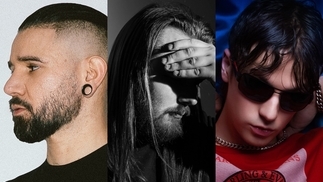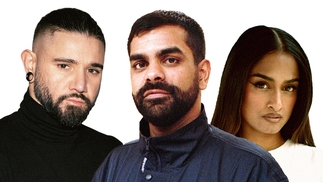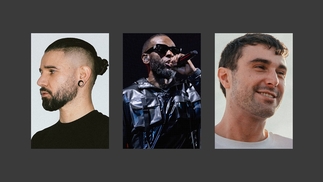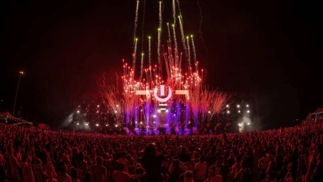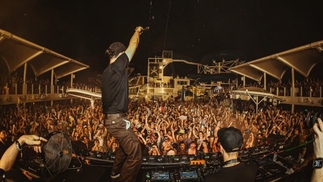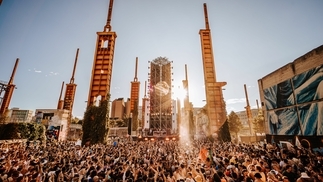PORTER ROBINSON: UNIVERSAL LANGUAGE
The main room sound of Porter Robinson
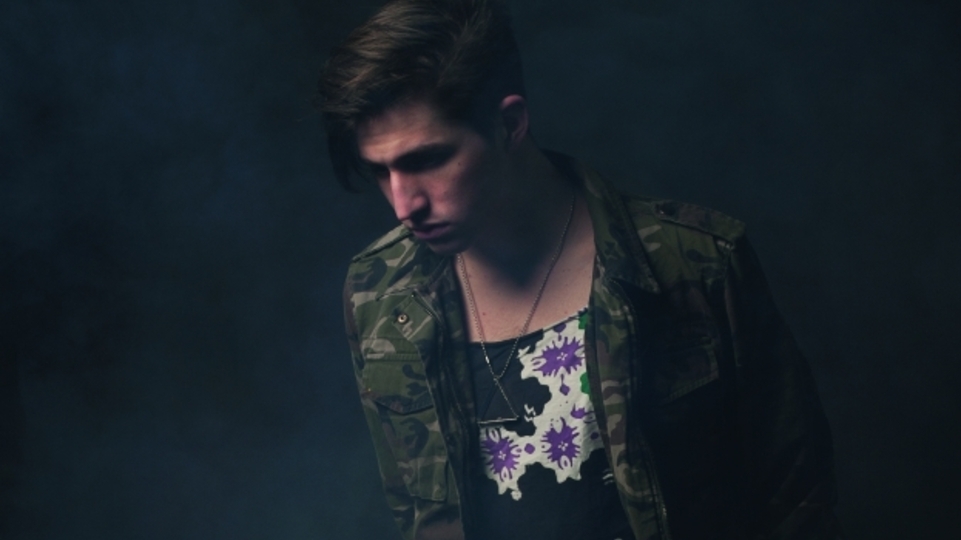
It’s hardly the most glamorous of surroundings. DJ Mag and Porter Robinson are in a pub around the corner from the grim industrial estate in North London housing the studio where the young American producer has just completed our photo shoot, and where the oily rain battering against the window is only just about drowned out by the maudlin Irish folk music on the jukebox.
To be honest, with its threadbare carpets and peeling walls, it’s the kind of establishment even Rab C Nesbitt might regard as a bit down-at-heel, but Porter is contemplating it with the same curiosity many would in a museum, clearly fascinated by what you could say was an authentic slice of British culture of sorts. “So this is a pub?” he asks. “I’ve never actually been anywhere like this of my own accord since I’m not actually old enough to drink at home.” Indeed, the 20-year-old is also relishing an exotic British tipple he first sampled in Manchester last year. “Do they have something called bitter here?” he requests as DJ Mag heads to the bar. “I love that stuff! It’s so smooth.”
Still, whichever way you look at them, the old blokes nursing their pints could hardly be more different from the cheering clubbers awaiting Porter for his set at Ministry a few hours later, the whole pub far removed from the places to which he’s recently grown accustomed. For since he first emerged with tracks like ‘Say My Name’ in 2010 and especially since his ‘Language’ single went supernova earlier this year, you’d suspect you’d be more likely to find the EDM poster boy headlining festival stages, in Tiësto’s private plane or in the VIP room of XS in Las Vegas, where he has a residency.
All of where he’s been of late, but that’s not where his heart really lies. For what’s really exciting Porter when we meet isn’t the prospect of his debut set at one of the world’s most prestigious clubs, but returning home to his bedroom in his parents’ house in North Carolina.
“People think I fly in private jets, pop champagne all the time and have houses in six countries,” he laughs. “I totally don’t! My favourite part of my life is being in my bedroom writing music. That’s what I live for.”
A NEW LANGUAGE
That’s what Porter’s been doing ever since he was 12-years-old and his brother brought a copy of Japanese computer game Dance Dance Reaction home, which Porter claims “had the craziest music I’d ever heard! All I wanted to do was make electronic music after that”.
So, with no club or DJ culture of any description to be found in his small and sleepy hometown of Chapel Hill, Porter turned to the internet, where he discovered inspiration in the music of Wolfgang Gartner, and an online mentor based in Portland whose stentorian attitude shaped Porter’s whole approach to production.
“He taught me to work stupidly hard on music, so I’d send him something and he’d send it back saying ‘Here’s 25 reasons why this sucks!'’’ he recalls. “I judged music on how complicated it was, which is why I liked what Wolfgang Gartner was doing. My emphasis was on detail and intricacy just to show other producers how hard I was working.”
So much so that when ‘Say My Name’ was released, it was dubbed ‘complextro’ even as it sat atop Beatport’s electro house chart. “That squeaky electro Dutch house sound was really popular then,” Porter explains. “But I was doing this hyper-detailed glitch sound which sounded different, even though it’s blown up now.”
It certainly struck a chord with fellow bass-mangler Skrillex, who released Porter’s follow-up ‘Spitfire’ EP on his own OWSLA Records, setting him on course to really explode with ‘Language’; a track whose trance synths and female vocal marked a musical change of direction for Porter.
“'Language’ really defied my expectations,” he claims. “All my music up to that point was aggressive, bassy ‘Fuck you!’ drop music, and I was so nervous to release ‘Language’ because I thought my fans would think I was abandoning my sound. But it turned out to be the biggest song I’ve ever released.”
RAPID RISE
Porter’s new single ‘Easy’, a collaboration with British producer and fellow rising star Mat Zo, continues down a similar route, taking an earworm female vocal hook and throwing it into a pool of thumping beats and breakdowns, another highlight on what few — with the exception of Porter himself — would deny has been a spectacularly rapid rise.
“I’d dispute that because I’ve been writing electronic music for eight years, but if you look at the actual trajectory of my career it’s been like this,” he says, moving his hands slowly sideways before suddenly shooting them skywards. “I guess I hit it right at the point when dance music really started getting going in the States and I was fortunate to put out the sound I did then.”
‘Easy’ is also the centrepiece of his forthcoming ‘Ministry Of Sound Sessions’ mix album, which showcases the DJ skills Porter has developed since the DJ bookings began to come rolling in along with the adulation at an early age. Something which bemused Porter, since not only did he not consider himself a DJ, but his debut DJ appearance in San Francisco was only the second time he’d ever actually been in a club.
“It was certainly a baptism by fire!” he says. “I’m sure my first show was terrible. I feel like I’m learning more about it every day.”
He’s certainly getting plenty of practice in, having subsequently embarked on tours opening for Tiësto and Skrillex, playing enormous US raves like Ultra and become an increasingly regular visitor to Europe and Australia. Of course, some might carp that by hurdling right over the years of playing tiny venues to even tinier crowds, Porter hasn’t earned his DJ dues, although he argues that has also left him unencumbered by preconceptions about DJing, as well as giving him an interesting perspective on the current debate sparked by Deadmau5’s recent comments about David Guetta and Skrillex being “button pushers”.
“I had no experience of how a DJ set is structured, so I just went in there and did what I thought was most interesting which was this kind of quick mixing style,” he elaborates. “I sometimes wonder if I’d been more exposed to it that I’d have a more typical approach to DJing. It’s not that I think the faster you mix the better you are, but it does mean I feel like a more active participant in the performance, which is important to me because I’m using Traktor, so people could just say ‘He’s just using the sync button, what kind of DJ set is that?’
“I don’t do a pre-recorded DJ set because that would be boring to me and I’d feel dishonest, but the most important thing is that the audience has a good time,” he continues. “A proponent of pre-recorded sets might argue that you wouldn’t criticise the director of a play for putting on the same thing every night. Instead he’s made his art the best he thinks it can be and is presenting it to a crowd. But whilst I love DJing and think it’s really worthwhile, it’s also secondary to writing music for me.”
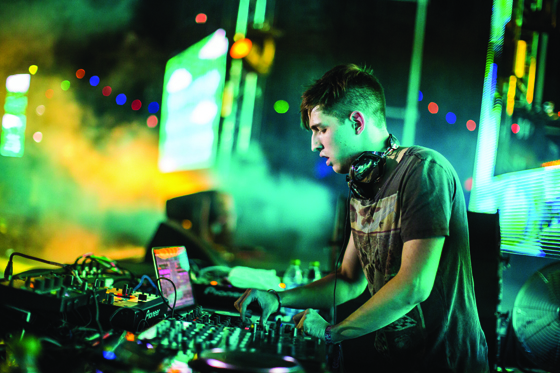
DANCE MUSIC MOVEMENT
Meaning he has very little time for people who take up DJing predominantly as a path to fame. “Your goal should not be to be fucking famous!” he spits. “Your goal should be to present something that you love.” Although these days Porter would seem to be no stranger to the lives of the rich and famous himself, having toured not just with Tiësto but also notorious party animal Tommy Lee of Motley Crue, who now DJs as half of Electro Mayhem.
However, anyone expecting scurrilous tales of excess of the sort recounted in Motley Crue’s infamous biography The Dirt will be disappointed to learn that Porter “didn’t see Tommy party once when we were on tour. He could almost be your kind old uncle buying everyone dinner and stuff” and that, despite presumably having access to amounts of free booze and willing women that would make most other 20-year-old males' minds pop, Porter prefers to spend time resting on his bus rather than reclining with groupies in a hotel suite.
“My tours are pretty mild-mannered but I just love being on the bus!” he enthuses. “When you’re flying everywhere you finish DJing at 2am and then you have to get up at 8am for your next flight. But on a bus you can just go to sleep and when you awake you’ve been magically transported to the next town.”
It’s there, in the small cities that his tour bus passes through rather than amidst the neon citadels of Las Vegas, that Porter believes the true heart of the EDM movement resides in the States. “Las Vegas is truly surreal and brings a lot of money to the table so there will always be a festival’s worth of artists playing there every night of the week,” he points out. “I’ve spent a lot of time in Las Vegas and I’ve grown to love it, but I think the real American dance music scene is going on elsewhere. A lot of Vegas clubs are 21+ and it’s more VIP rather than music-orientated. In Florida, California and New York, there are fans who know all your music and who really live for DJ culture. They put a lot more heart into the whole dance music movement.”
To Porter’s mind, the current American EDM craze isn’t just a movement, but a full-blown revolution. “People want to be part of it because other music has just stagnated,” he claims. “It might also have something to do with the economic downturn, because people just want to party and escape.” He also thinks EDM has gone far beyond the last time dance music was supposedly going to break the American mainstream in the late '90s, when British bands like The Chemical Brothers and The Prodigy had apparently kicked the doors down, only to find them quickly slammed shut again. “It’s reached critical mass now and there are literally millions of dollars in the hands of record labels focused solely on dance music. It’s worth comparing to the '90s because back then it went big and crashed hard and everyone’s wary of that — but I do think this is different.”
EDM BEGINNINGS
Of course, to kids of Porter’s generation, Daft Punk’s ‘Discovery’ – which he namechecks as his all-time favourite album — sounds like ancient history, never mind the likes of Frankie Knuckles or Derrick May who arguably began the first electronic dance music revolution in America a quarter of a century ago. Indeed, so distant does this seem to him that he struggles to see much connection at all between their music and his own, something which pits him against purists who regard EDM as an outright desecration of America’s underground dance music heritage.
“You could say that dance music started in the United States and that was a form of electronic music,” he opines. “But you can’t say that electronic music began in America because that goes back through Kraftwerk to the musique concrete of the 1960s. I don’t think that Detroit techno ultimately turned into dubstep for example, because it went to Europe and became progressive house and then commercial house and then Justice happened, and then Skrillex heard what they were doing and combined it with dubstep and made it noisier blah blah blah. So the lineage of it is really so twisted and hard to trace.”
However, although he’s at pains to point out that he’s grateful to the scene for his success, there are times when Porter is discussing much of the music branded EDM that this 20-year-old sounds as vituperative as the most jaded forty-something techno trainspotter.
“Dance music going mainstream has exposed it to a lot of people who would never have heard it and I’m sure love it in a genuine way,” he says. “But I cringe when I hear the word ‘EDM’ because to me the words conjure up something artless and prescriptive, and even the name ‘Electronic Dance Music’ sounds functional — like something you’d just pick off a shelf. It tells you in such a clear instructive way how to react to it — like ‘this is the build-up’ and then ‘this is the drop’ and then ‘This is where you have fun’. I don’t want my music to be just a vessel for DJs to help people party.”
In fact, as Porter describes the album he’s itching to get back to his bedroom to keep working on, he says he’s now writing music to “make people cry” instead.
“I’ve kind of realised that the whole rave attitude of ‘Let’s go crazy!’ is cheap and easily won, so I’m focusing on more emotional material right now,” he elaborates. “A year ago I wanted to make big bangers but I feel like I’ve done that and now I want to explore different things, so I’m investigating different chord progressions and song structures because there are certain techniques you can use to make people feel certain things. That’s kind of creepy when you think about it, because human emotions are meant to be instinctive and intangible yet music offers a way to rationalise them in some way. I will continue to do fun DJ gigs and the last year has been the best time of my life, but there’s a part of me that also feels dissatisfied and yearns for something more substantial. I don’t know — I’m in a weird place right now.”
By which he doesn’t just mean this pub.
Porter’s three ‘old school’ inspirations
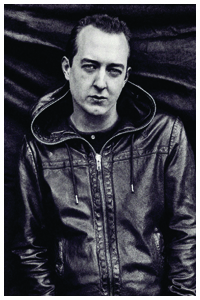
Wolfgang Gartner
“He’s an absolute music production ninja. He’s got music prowess coming out of his ass. He completely influenced my own music and he follows me on Twitter — so I presume he likes me as well!”

Daft Punk
“If you want a successful music career then make sure ‘Discovery’ is the first album you buy. Other producers my age like Zedd and Mat Zo will say the same because it’s so soulful and introduced us to so many new worlds of music.”
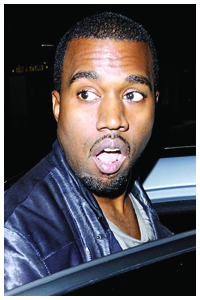
Kanye West
“'The Graduation’ is my second favourite album of all-time because of those cool sampled soul beats. His music is always cool but he’s also a crazy cultural icon. He sometimes makes an ass of himself, but I find the fact he’s simultaneously a genius and a fool very interesting.”
Porter’s three ‘new school’ heroes
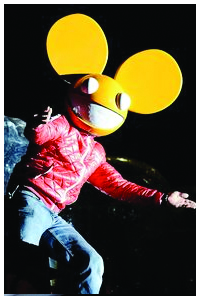
Deadmau5
“He’s been a part of this whole EDM thing since the start but his music is so uncompromising. It’s never dumb and functional and it can also be really indulgent, and I respect that. He’s never afraid to say what he thinks either.”
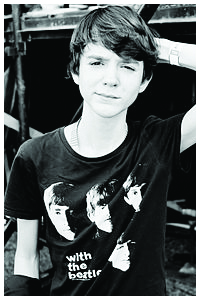
Madeon
“I’ve known Madeon since before either of us had careers — we were internet friends when he was 14 and I was 12. He’s a genius who puts crazy encoded messages in his music and he wants his art to be studied for decades — like The Beatles.”
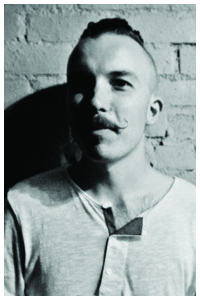
The M Machine
“They’re on Skrillex’s label and they create this crazy weird alternative indie music that also has these electronic sections that are really powerful. I think they’re fascinating.”
